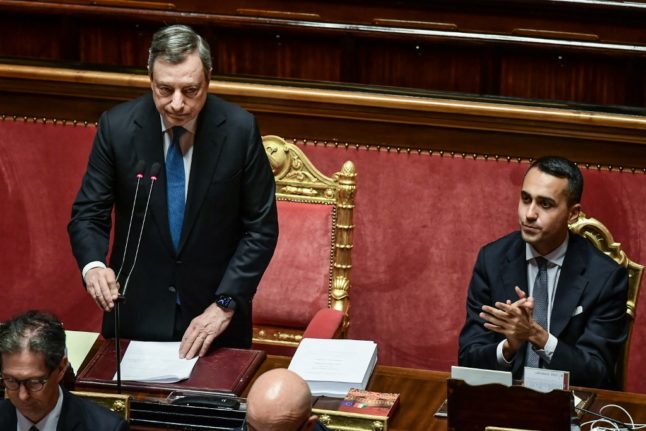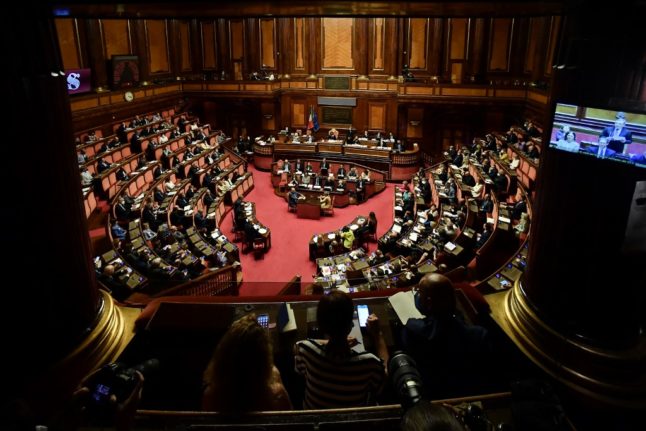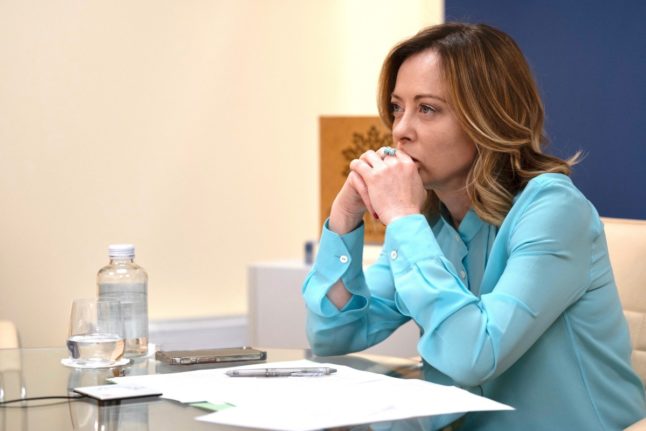Draghi has taken a firm, pro-EU line on Russia’s invasion of Ukraine: sending weapons to Kyiv, backing sanctions on Moscow despite Italy’s heavy reliance on Russian gas, and supporting Ukraine’s hopes of joining the European Union.
But there have been rumblings of unease within his coalition government, which burst into the open on Tuesday with a split in parliament’s biggest party, the Five Star Movement.
Foreign Minister Luigi Di Maio announced he was leaving the party amid disagreements over how Italy should respond to the Ukraine war.
An estimated 60 lawmakers are following him into his breakaway group, named “Together for the Future” – just over a quarter of Five Star’s MPs.
READ ALSO: Italian government rocked by Five Star party split
The move risks upsetting the fragile balance of power in Draghi’s coalition government, a year before general elections are due and at a difficult time for Italians battling skyrocketing inflation.
A vote on Wednesday suggested parliament still overwhelmingly backs the premier, with the lower Chamber of Deputies approving by 410 to 29 a resolution supporting the Ukraine policy.
The Senate similarly approved it on Tuesday.

“Unity is essential in these moments because the decisions that must be taken are very difficult,” Draghi said before Wednesday’s result, which came one day before an EU summit in Brussels begins.
In an uncharacteristically combative address to deputies, Draghi accused those who disagreed with his policy of effectively calling on Kyiv to surrender.
“There is a fundamental difference between two points of view. One is mine – Ukraine must defend itself, and sanctions and the sending of weapons serve this goal,” Draghi said to applause.
“The other point of view is different. Ukraine must not defend itself, we shouldn’t do sanctions, we shouldn’t send armaments, Russia is too strong, why should we take her on, let Ukraine submit.”
Di Maio had made a similar attack on members of his own party at the weekend, paving the way for Tuesday’s defection.
Five Star leader Giuseppe Conte, the country’s former premier, has argued that Italy should focus on a diplomatic solution, warning against getting involved in an escalating arms race.
Conte and Di Maio have been at odds since long before the war, however.
Five Star leader Giuseppe Conte stressed that his party still backed the coalition, saying: “Support for Draghi is not up for discussion.”
Nevertheless, some commentators believe Draghi’s coalition government – involving all main political parties except the far-right Brothers of Italy – will start to splinter ahead of 2023 elections.
The Five Star split is likely to weigh on “the entire political system, starting with Draghi, who is now more shaky than before,” wrote La Stampa columnist Marcello Sorgi.
The defections in Five Star leave the anti-immigration League of Matteo Salvini as the biggest party in parliament, but it too is struggling with waning public support.
Media reports this week suggest this could work in Giorgia Meloni’s favour in the next election – the far-right Brothers of Italy leader is now being touted as potentially becoming the country’s first female prime minister, as her party remains the only one in opposition to Draghi’s coalition.



 Please whitelist us to continue reading.
Please whitelist us to continue reading.
Member comments